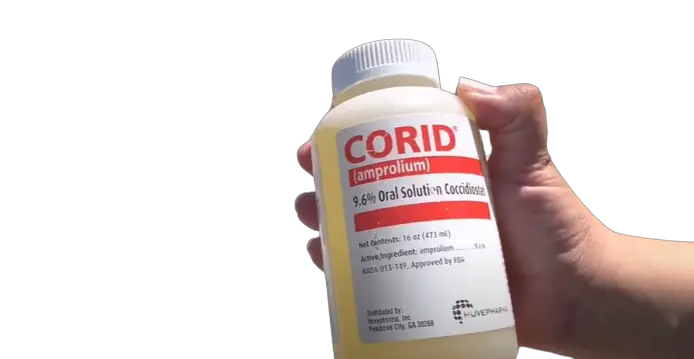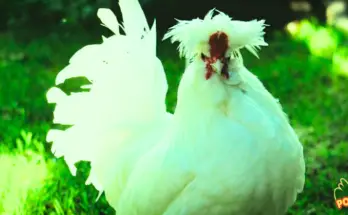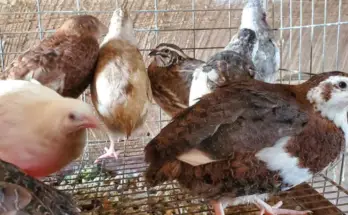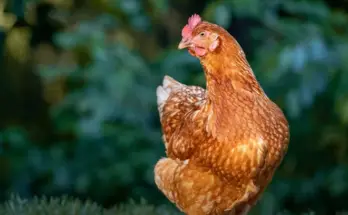Understanding Corid Dose: A Comprehensive Guide to Coccidiosis Treatment in Animals
Introduction:
Coccidiosis is a commonplace and potentially devastating protozoan parasitic infection that affects a wide range of animals, inclusive of poultry, farm animals, and even a few domestic pets. Among the numerous treatment alternatives to be had, Corid (amprolium) has emerged as a broadly used and effective medicinal drug to fight coccidiosis. In this comprehensive manual, we can delve into the information of Corid dose, exploring its uses, administration, capability aspect consequences, and normal importance in coping with coccidiosis in animals.
Understanding Coccidiosis:
Coccidiosis is due to a collection of protozoan parasites belonging to the genus Eimeria. These microscopic parasites thrive in the intestines of animals, leading to inflammation, damage to the intestinal lining, and, in excessive instances, death. The infection is highly contagious and spreads through the ingestion of contaminated feces, feed, or water.
Common symptoms of coccidiosis encompass diarrhea, weight loss, reduced feed consumption, lethargy, and, in excessive instances, blood in the feces. Since coccidiosis can have a sizeable monetary effect on cattle and hen industries, set off and powerful remedy is critical.
The Role of Corid in Coccidiosis Treatment:
Corid, or amprolium, is a coccidiostat usually used to treat and prevent coccidiosis in animals. It works by using interfering with the parasite’s capacity to multiply and mature within the host’s intestinal cells. Corid is mainly effective against Eimeria species, the primary culprits in the back of coccidiosis in animals.
One of the important thing advantages of Corid is its extensive-spectrum activity, making it effective towards multiple species of coccidia. Additionally, Corid is to be had in various formulations, consisting of liquid answers, powders, and medicated feeds, making an allowance for flexibility in management.
Determining the Corid Dose:
The suitable Corid dose relies upon on numerous elements, along with the severity of the coccidiosis infection, the form of animal being dealt with, and the precise formulation of Corid being used. It is crucial to follow the producer’s recommendations and consult with a veterinarian for correct dosage data tailored to the person occasions.
For fowl, Corid is regularly administered inside the water deliver. A common initial dose for chickens is round 20 mg amprolium in keeping with kilogram of body weight for a duration of 5 to 7 days. This is usually observed with the aid of a lower renovation dose for an additional 1 to two weeks. However, specific suggestions may also range based at the severity of the infection and the age of the birds.
In the case of livestock, inclusive of cattle and goats, Corid may be administered orally or combined with feed. Dosages may additionally differ, and it is important to consult with a veterinarian to decide the most suitable path of remedy. Failure to administer the suitable Corid dose can result in remedy failure or capability harm to the animals.
Administration of Corid:
Proper administration of Corid is crucial for its effectiveness and the nicely-being of the animals. Here are some key considerations for administering Corid:
Water Administration: When using the water-soluble form of Corid, it’s miles vital to make sure that animals eat the medicated water as their number one source for the duration of the remedy duration. Avoid imparting opportunity water sources to assure the appropriate dosage consumption.
Feed Mixing: If using medicated feeds, very well mix the Corid into the feed to make sure uniform distribution. This facilitates in preventing selective feeding and guarantees that each one animals receive the best dose.
Individual Dosing: In some instances, mainly with smaller animals, character dosing can be important. This guarantees that every animal receives an appropriate amount of drugs primarily based on its frame weight.
Hydration: Coccidiosis can result in dehydration in affected animals. It is essential to screen their hydration popularity throughout treatment and take appropriate measures to cope with any symptoms of dehydration.
Potential Side Effects of Corid:
While Corid is commonly considered safe when used in keeping with the recommended suggestions, like all medicine, it is able to have potential side outcomes. Some common side outcomes include a temporary discount in feed intake, in addition to thiamine deficiency in ruminants.
Thiamine deficiency can arise because of the competition among thiamine (Vitamin B1) and amprolium for absorption within the intestines. This can cause polioencephalomalacia, a neurological disorder. To mitigate this risk, it’s miles advisable to supplement thiamine throughout the treatment period, particularly in ruminant species.
Additionally, extended and indiscriminate use of coccidiostats, which include Corid, might also contribute to the improvement of drug-resistant traces of coccidia. Therefore, it’s far essential to use those medications judiciously and beneath the steerage of a veterinarian.
Preventing Coccidiosis:
While Corid is an effective treatment for coccidiosis, prevention stays a key factor of dealing with this parasitic contamination. Implementing top management practices can appreciably lessen the risk of coccidiosis outbreaks. Here are a few preventive measures:
Clean Environment: Maintain clean and dry dwelling situations for animals, together with frequently cleaning pens, coops, and cages. Remove feces directly to reduce the chance of coccidia infection.
Proper Nutrition: Ensure animals acquire a balanced and nutritionally ok eating regimen. Proper vitamins strengthens the animals’ immune structures, making them extra resistant to infections.
Hygiene Practices: Practice precise hygiene whilst handling animals, feed, and system. This consists of thorough handwashing and using disinfectants to minimize the spread of coccidia.
Isolation of New Animals: Quarantine and display new animals before introducing them to present herds or flocks. This helps save you the advent of coccidia from outside assets.
Conclusion:
Coccidiosis is a huge concern for farmers, chicken keepers, and livestock manufacturers international. The use of Corid as a coccidiostat has proven powerful in handling and treating coccidiosis in various animal species. However, proper know-how of the Corid dose, management techniques, and potential facet consequences is vital for a success treatment consequences.
It is vital to paintings closely with veterinarians to diagnose coccidiosis appropriately and develop the perfect treatment plan tailor-made to the precise desires of the animals. Furthermore, combining effective treatment with sound preventive measures can notably lessen the incidence of coccidiosis, promoting the general fitness and properly-being of the animal population.




